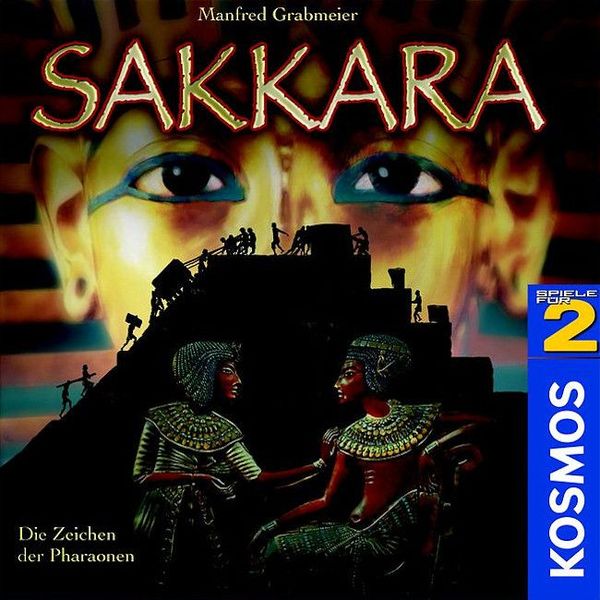Sakkara (2007) Board Game
Sakkara is a board game that was released in 2007 and designed by Martin Hoffmann, Claus Stephan, and Mirko Suzuki. It falls under the category of abstract strategy games and is set in ancient times. The game features hand management, modular board, set collection, and tile placement as its main game mechanics.
Game Components of Sakkara
How To Setup Sakkara
To set up the game, players place the game board in the middle of the playing area. Each player chooses their worker tokens and places them on designated starting spaces on the board. The building materials and score tokens are distributed according to the rules. The objective is clearly defined from the outset, with the goal of constructing the pyramid.
Gameplay Mechanics and Game Objective
Player Experience
In **Sakkara**, players are immersed in a competitive environment where strategic planning and resource management are key. The game requires players to think ahead and optimize their worker placement to gather and use resources efficiently. The game’s theme of constructing an ancient pyramid adds a unique and engaging layer to the gameplay experience.
Pros
Cons
Personal Thoughts on Sakkara
**Sakkara** is ideal for those who enjoy light to medium complexity games with a strong thematic element. It is particularly suited for families or casual gamers looking for a game that is easy to learn but still offers some strategic depth. While it may not appeal to hardcore gamers seeking high complexity, it provides a fun and engaging experience for its target audience.
We are supported by our audience. When you purchase through links on our site, we may earn an affiliate commission, at no extra cost for you. Learn more.

